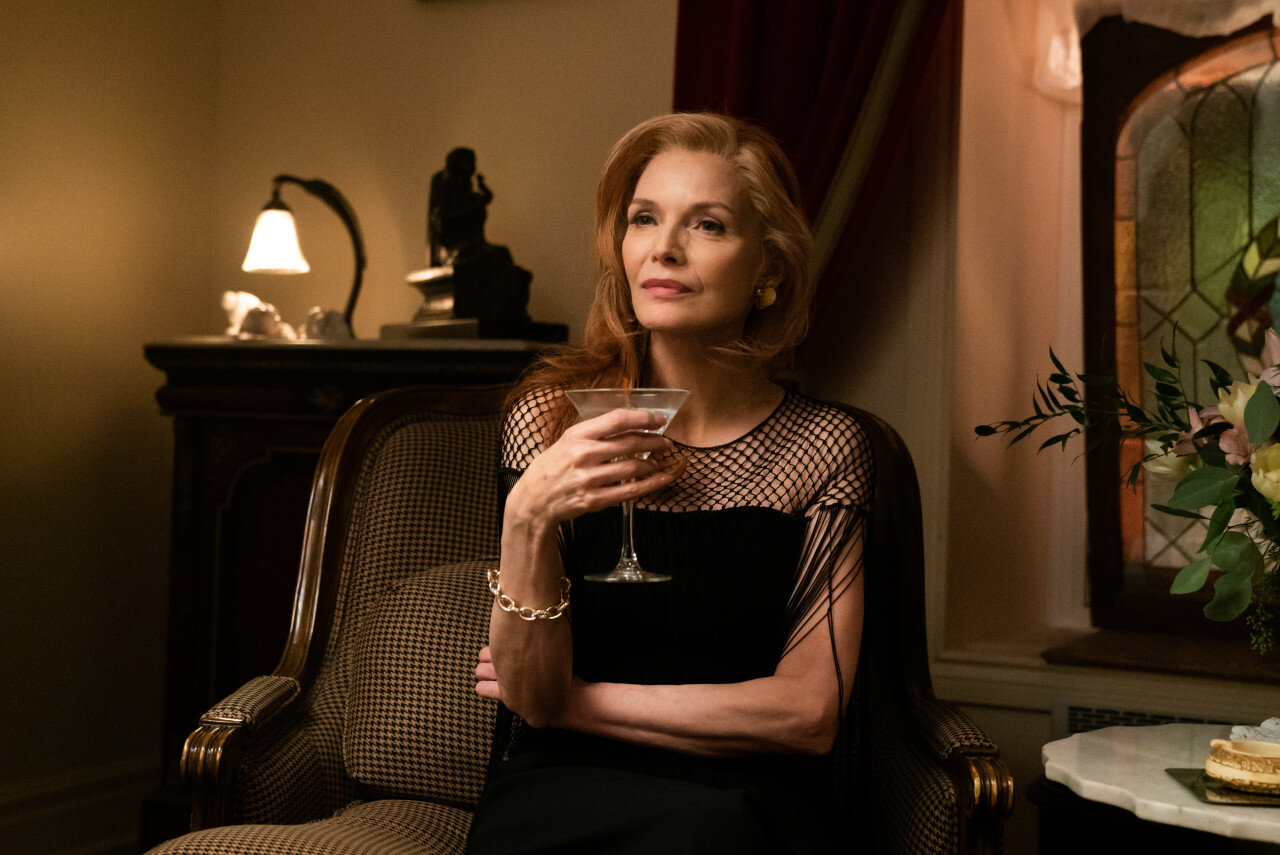French Exit: Michelle Pfieffer Riches-to-Rags Drama Leaves a Bitter Taste and Impression
By Thom Ernst
Rating: C+
There is a lot of clamor around Michelle Pfieffer's turn as Frances Price in Azazel Jacobs's adaptation of Canadian novelist Patrick DeWitt's French Exit.
Pfeiffer's performance earned a recent Golden Globe nomination and a CSA nomination for performance by an actress in a leading role. But as memorable as Pfieffer is in French Exit, hers is far from a nuanced performance. Her Frances Price is a dry, single-note character whose unapologetic aristocracy doesn't ask for redemption, only to be pardoned.
There is a long history of unlikeable characters capable of winning our affections. Would McMurphy be anyone without Nurse Ratched or Dorothy without the Wicked Witch or Batman without the Joker?
It's difficult to know how to feel about Frances Price, a cold and unresponsive woman so removed from the real world that she's unable to maintain a conversation without resorting to ridicule. Price is in a class of her own.
Her interactions imply confusion as to why there are others on her planet. She acknowledges social obligation but bails long before sufficiently fulfilling the debt. She treats those in her service with careless disdain and regards her son, Malcolm (played with a wider berth of empathy by Lucas Hedges) with cool disapproval. But, with her money running out, Price is forced to edge towards being more humane.
PROUDLY SUPPORTS ORIGINAL-CIN
The film opens on a new chapter of Price's life, that of impending poverty. But poverty has a different face for the obnoxiously wealthy than it does for others. For Price and Malcolm and their cat—the cat being the most engaging character in the film— poverty means living in a scaled-down apartment in Paris.
Price's sudden loss of wealth seems to arise out of her own doing insomuch as her accountant pointedly reminds her that he warned her this was coming. She further exasperates by running through the remainder of her wealth at reckless speed.
Her actions, I presume, are to rid herself of the selfish trappings of privilege—an unintentional reminder of the annoying money burning scene in Into The Wild (2007), and more recently, the even more annoying money burning scene in The Marksman (2021). They're far less grating symbols of anti-capitalism than turning cash to ash.
Price unintentionally creates a haven for the oddball selection of characters she collects along the way. There are bright moments in scenes involving the widowed ex-patriot, Mme. Reynard (Valerie Mahaffey) and Price's compassionate and grounded friend, Joan (Susan Coyne). And the occasional side-glance at Malcolm's quest to regain the love of his former fiancé, Susan (Imogen Poots) from her current beau (Daniel di Tomasso) provides the film with at least some romantic stake.
DeWitt poses a scenario too challenging to embrace the kind of empathy required to make Price redeemable. With her abrasive dismissals, she is neither comically absurd enough nor vacantly unaware to earn even our cringe-worthy favour. There is not enough to root for her redemption. We might only hope she reaches some revelation for the sake of Malcolm.
I struggle to find the point in this exercise, although I know one exists. I think it might have something to do with the breakdown of privilege and the importance of opening up to other equally unfortunate rich people.
And then there is Pfeiffer lauded by some as giving a tour-de-force performance. But I argue that Pfeiffer's performance is more noticeable than notable. And whatever impressions the film hopes to leave us with gets buried in her path. ]
CLICK HERE to see Bonnie Laufer’s interview with French Exit star Lucas Hedges.
French Exit. Directed by Azazel Jacobs. Starring Michelle Pfeiffer, Lucas Hedges, Valerie Mahaffey, Imogen Poots, and Susan Coyne. Available in select theatres nationally April 2.



